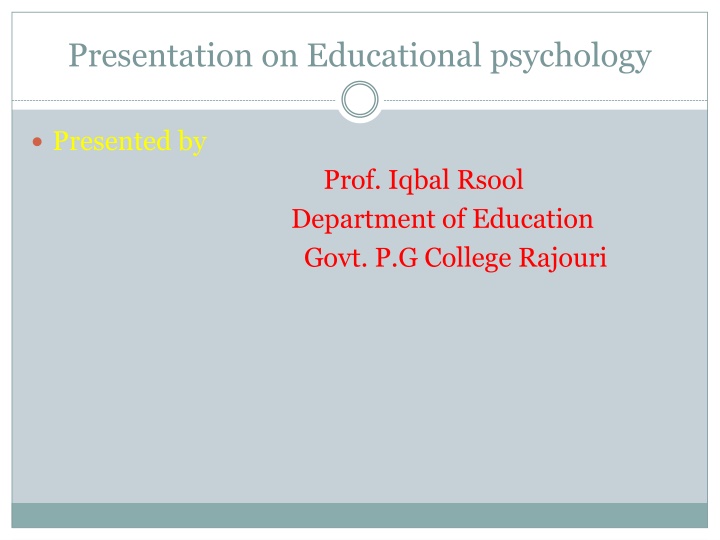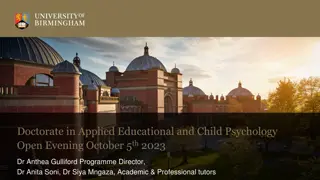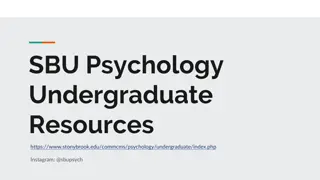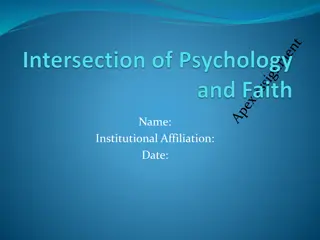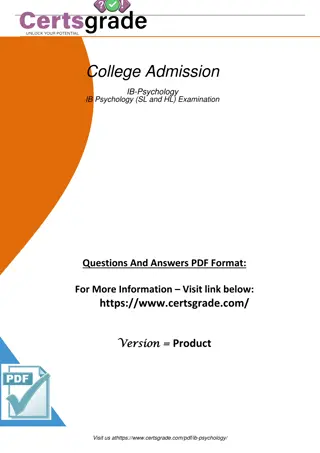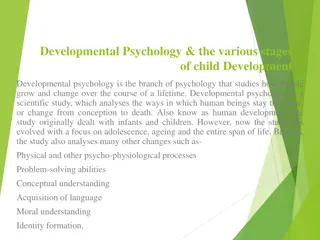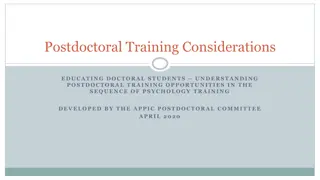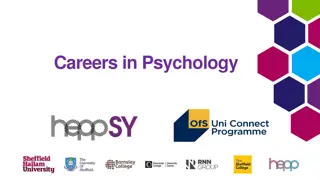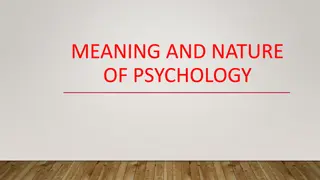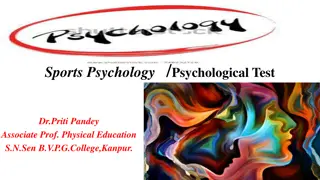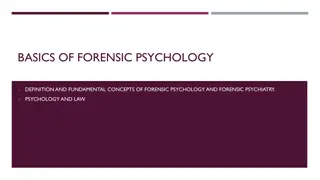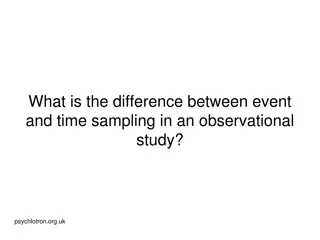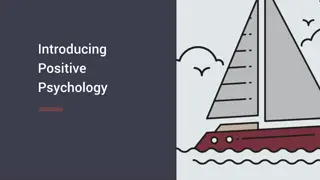Presentation on Educational psychology
Educational psychology delves into human learning processes, examining cognitive and behavioral perspectives to understand intelligence, motivation, and more. Tracing back to Plato and Aristotle, it has evolved into a science with methods like introspection and observation. The scope includes learners, learning experiences, and teacher roles. Its importance lies in developmental aspects, modern teaching methods, IQ tests, and psychological testing. Explore educational psychology's rich history and practical applications.
Download Presentation

Please find below an Image/Link to download the presentation.
The content on the website is provided AS IS for your information and personal use only. It may not be sold, licensed, or shared on other websites without obtaining consent from the author.If you encounter any issues during the download, it is possible that the publisher has removed the file from their server.
You are allowed to download the files provided on this website for personal or commercial use, subject to the condition that they are used lawfully. All files are the property of their respective owners.
The content on the website is provided AS IS for your information and personal use only. It may not be sold, licensed, or shared on other websites without obtaining consent from the author.
E N D
Presentation Transcript
Presentation on Educational psychology Presented by Prof. Iqbal Rsool Department of Education Govt. P.G College Rajouri
Educational psychology Educational psychology is the branch of psychology concerned with the scientific study of human learning. The study of learning processes, from both cognitive and behavioral perspectives, allows researchers to understand individual differences in intelligence, affect, motivation, self-regulation, and self-concept, as well as their role in learning. cognitive development,
History Plato and Aristotle. Grinder traces the origins of Educational Psychology to Plato who believed that all knowledge is innate at birth and is perfectible by experiential learning during growth. Aristotle, Plato's student, was the first to observe that association among ideas facilitated understanding and recall. He believed that comprehension was aided by contiguity, succession, similarity and contrast. Locke In the late 1600's, John Locke advanced the hypothesis that people learn primarily from external forces. He believed that the mind was like a blank was tablet (tabula rasa), and that successions of simple impressions give nrise to complex ideas through association and reflection. Locke is credited with establishing "empiricism" as a criterion for testing the validity of knowledge, thus providing a conceptual framework for later development of excremental methodology in the natural and social sciences. Comenius John Comenius (1592-1670) was a Moravian clergyman, and the first person to recognize the age differences in children's ability to learn. He also noticed that children learn more effectively when they are involved with experience sthat they can assimilate.
Nature 1. Educational Psychology is a science. 2. Educational Psychology is a natural science. 3. Educational psychology is a social science. 4. Educational psychology is a positive science. 5.Educational psychology is an applied science.
Methods of Educational Psychology Introspection method Observation method Case study Interview method
Scope Learner Learning experiences Learning Situations Learning process Teacher l
Importance Knowledge and understanding of developmental characteristics in all its aspects; physical, emotional, moral, social and cognitive. Modern and effective methods and methods of teaching, as well as control of educational situations environments. IQ tests and mental abilities that measure students' abilities and mental abilities, as well as ways to understand personality traits and patterns. Methods and conditions for the establishment of psychological and educational tests , and the principles and bases for the development of tests of achievement through effective methods that confirm the achievement of the goal of the educational process. Social and interactive life that arises between students and between students and teachers in different educational
Conclusion Educational psychology research on motivation is concerned with the volition or will that students bring to a task, their level of interest and intrinsic motivation, the personally held goals that guide their behaviour, and their belief about the causes of their success or failure. As intrinsic motivation deals with activities that act as their own rewards, extrinsic motivation deals with motivations that are brought on by consequences or punishments.
